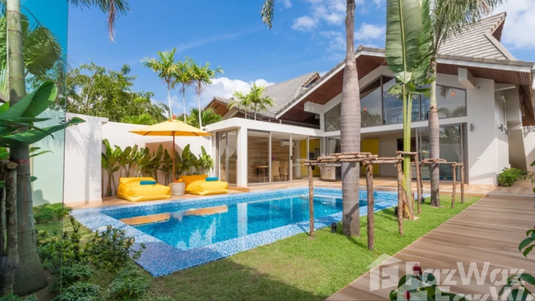- List your property - it's free
- Sign up or Log in
-
English- en
-
THB - ฿
- Buy
- Thailand Property For Sale
- Thailand Real Estate
- See Newest Listings
- Why Buy with FazWaz
- Rent
- Sell
- Projects
- Advice
- Property Management
- Vacation Rental Management

Owning a holiday home in Thailand offers an opportunity for a private paradise with mesmerising views, whether you're looking for a beachfront villa in Phuket, a mountain view house in Chiang Mai, or an modern home in Bangkok. However, selecting the right property as your holiday home in Thailand is overwhelming, given the variety of options and distinct local regulations. Here are some steps you can take to make the right choice.
Before you start searching for properties to buy as your holiday home, be clear about your purpose. Are you looking for a tranquil retreat, a property for investment, or perhaps a mix of both? Consider how often you'll be visiting the property, as this will affect the type of home you should buy as well as ongoing costs like maintenance and utility bills. You have to consider maintanance efforts for your holiday homes as well. Do you rent out your our your holiday home as an passive income and for investments reasons. Check out how to earn rental yield from your property here.
Thailand offers a range of landscapes, from bustling cities to tranquil beaches and mountainous regions. Each has its own pros and cons, so thoroughly research each potential location. Visit multiple times if possible, and talk to locals and expatriates to get a better understanding of the area.

Thailand has specific laws regarding property ownership for foreigners. Generally, foreigners can own condominiums but can't own land outright. Land leaseholds and owning property through a Thai-registered company are common workarounds, but these come with their own risks and legal obligations. Always consult a local legal expert when considering such options.
For more information on Thailand ownership laws click on the button below.
Property Ownership law in Thailand
Apart from the cost of the holiday homes in Thailand, you should also consider:
This is crucial to any property investment:
Unless you're paying for the property outright, you might need to consider local financing options. Thai banks do offer mortgages to foreigners, but terms and conditions apply, and interest rates may be higher compared to what you're used to in your home country.

Once you've considered all these factors, you're ready to make the purchase for properties in Thailand. Typically, a deposit is made to secure the property, followed by due diligence and finally, the full payment and transfer of ownership. In Thailand, this often involves signing contracts in both English and Thai, witnessed by your lawyer and often, a representative from the local Land Department.
Owning a holiday home in Thailand is an exciting venture but is not without its challenges. By conducting thorough research and seeking expert advice, you can simplify the process and enjoy your very own piece of paradise.